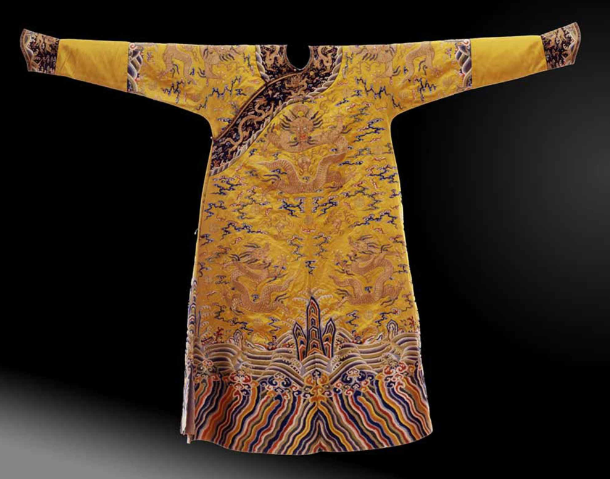Difference between revisions of "PEM E80968 Dragon robe, China (19th century)"
Jump to navigation
Jump to search
| Line 9: | Line 9: | ||
== Summary of results == | == Summary of results == | ||
| − | [[File: | + | [[File:Sampling PEM E80968.PNG|thumb|'''One yellow thread from the collar seam was removed for dye analysis]] |
Yellow thread from the collar seam was samples and analyzed. The major components of the plant are flavonoids: rutin, keampferol and quecetin glycosides. The dyeing source was probably [http://cameo.mfa.org/wiki/Pagoda_tree_(Styphnolobium_japonicum)_LC pagoda tree buds]. [1] | Yellow thread from the collar seam was samples and analyzed. The major components of the plant are flavonoids: rutin, keampferol and quecetin glycosides. The dyeing source was probably [http://cameo.mfa.org/wiki/Pagoda_tree_(Styphnolobium_japonicum)_LC pagoda tree buds]. [1] | ||
Revision as of 12:23, 7 August 2017
Artifact Information
The Peabody Essex Museum in Salem, MA USA. E80968.
Summary of results
Yellow thread from the collar seam was samples and analyzed. The major components of the plant are flavonoids: rutin, keampferol and quecetin glycosides. The dyeing source was probably pagoda tree buds. [1]
HPLC profile
References
[1] Xian Zhang,Karina Corrigan, Bruce MacLaren, Mimi Leveque, and Richard A. Laursen, Characterization of Yellow Dyes in Nineteenth Century Chinese Textiles. Studies in Conservation 52, 211-220 (2007).

